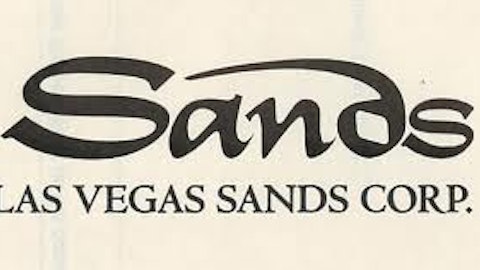Penn National Gaming, Inc. (NASDAQ:PENN) recently announced plans to be the first company to create a casino focused REIT. The associated tax advantages will allow Penn to strategically begin returning capital to shareholders. The plan is to split Penn into two publicly traded companies, one for its operations and another – the REIT – for its property.
The way the current deal is proposed is that current Penn shareholders will receive shares of the new REIT on a one-to-one basis. Then, REIT investors will receive a special dividend of around $15 per share, which will be 35% cash and 65% stock. The REIT would then lease the assets back to the operating company. This speculated lease structure would involve a triple net lease that equals north of $450 million in rent revenue. The split should help both companies access cheaper capital and have fewer regulatory restrictions. Penn is one of the top five-casino stocks hedge funds love (see our entire Top Ten here).
Penn’s 23x trailing P/E, compared to its forward P/E of 17x suggests that investors still might be overlooking the casino stock. The yield on Penn’s new REIT looks to be very promising. Penn expects to pay out around $2.35 in dividends per share annually, putting the theoretical dividend yield to 7.5% for the new REIT shares. This may even be on the conservative side as the new casino REIT may well trade higher on a multiples basis. The current 2012 price-to-FFO multiple for Penn as a whole comes in around 7x and the current pricing of the casino REIT would put it trading at 12x FFO. Compare this with the U.S. REIT universe that trades with an average P/FFO multiple of 15x in 2012, and we believe we could see an even higher yield after everything is said and done.
Pinnacle Entertainment, Inc. (NYSE:PNK) is another gaming stock that could consider unlocking value for investors by taking advantage of a REIT status. The 3Q results for Pinnacle showed EPS of $0.30, beating consensus of $0.18. Unlike the other casino stocks listed below, Pinnacle and Penn are primarily regional operators. Pinnacle may likely see less growth than other major casino operators given its lesser exposure to the rapidly growing China and Singapore markets, but it has posted itself in key markets in the U.S. that are insulated from Las Vegas’ slowdown. Although Pinnacle does not currently pay a dividend it has amassed some $150 million in cash, and a theoretical 3% dividend yield would only require around $25 million.
MGM Resorts International (NYSE:MGM)‘s 3Q results showed that its Vegas segment was a drag on the company, much like its peers in the casino sub-industry. EBITDA for 3Q came in 10% below expectations for the U.S. segment, while Macau property EBITDA was relatively in line. MGM’s over exposure to Las Vegas makes it less appealing than Wynn or Las Vegas Sands, not to mention its industry high 50% debt-to-equity status. Even so, MGM is one of billionaire John Paulson’s top picks; he is the top fund owner of the casino stock and has over 3% of his 13F invested in MGM (check out John Paulson’s newest stock picks).




